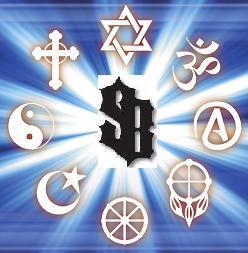|

|


| |||||||||||||||||||||||||||||||||||||||||||||||
| Join Here |
|
Becoming a member of the Church of Belief Science is easy. Simply use the link below to e-mail your pledge to "believe in, live by, and uphold the Canons of the Church of Belief Science," and you are officially a member. We will contact you by e-mail and provide additional information about different forms of practice or about forming or joining an Assembly in your area of interest. administrator@churchofbeliefscience.org BENEFITS OF MEMBERSHIP FOR YOU: 1. You will be a part of a caring community--a place where you will find other people to share ideas and friendship, either in person or through electronic means of communication. 2. You will be in communion with a group of believers committed to the study of many truths under the umbrella of one uniting Church with a distinct (postmodern) philosophy. 3. You will be committed to a set of guiding principles (the Canons of the Church) that will help you make important decisions throughout your life. 4. You will be part of a new religious movement to establish a positive psychology of religion.  BELIEF SCIENTISTS PRACTICE IN ONE OF THREE WAYS: 1. Individual Practice with Linkage to the Belief Science Community. A member commits to the Canons of the Church and formally joins the Church. He or she would then practice Belief Science by following the Canons, with regular contact with other members through electronic or personal interactions. The member would not be actively participating in activities of an Assembly except electronically. The member would regularly recite the Creed of Belief Science and would practice the Centering (meditative) activity, designed to help members focus on relationships of significance in a positive way. A mentor would be assigned to help the individual develop personally and spiritually, consistent with the interest of the member. Some individuals equate this form of practice with Eastern traditions. 2. Full Assembly Involvement in an Assembly (Electronic or Physical) Aligned with Religious Interests. A member commits to the Canons of the Church and formally joins the Church. He or she then joins or forms an Assembly consistent with his or her religious interests, such as in the study of Christ, Islam, Buddhism, Judaism, Hinduism, Atheism/Agnosticism, Scientism, Naturalism, or Comparative Religions, as examples. Each assembly has a focus. Members would meet in a physical space (or by electronic means) at least monthly. A priest would oversee Assembly activities and would be elected from members of a new Assembly (to start the educational process for the priesthood). 3. Belief Science membership with Participation in the Activities and Practices of Other Religions. A member commits to the Canons of the Church and formally joins the Church. The member attends services of another religion or church, without formal commitment to the rules and beliefs of the other Church. For example, a Belief Scientist in the Study of Christ's teachings may actively attend a Christian Church's services, become involved in that Church's activities, but still maintains allegiance to the Canons of Belief Science. When questioned, however, the Belief Scientist responds that he or she is a Belief Scientist. Belief Scientists do not recite creeds of other religions. This practice option is chosen by those who have strong connection to a specific religious tradition (by family tradition, for example), but who have doctrinal or personal concerns with some or many of the religion's beliefs or practices. Belief Scientists act as good citizens when involved with other churches and do not break the rules of the other church (for example, taking communion at a Catholic Church would be unacceptable). Belief Scientists may contribute to another church, but they are asked also to contribute time, money, or effort to the Church of Belief Science. |
 |

|



